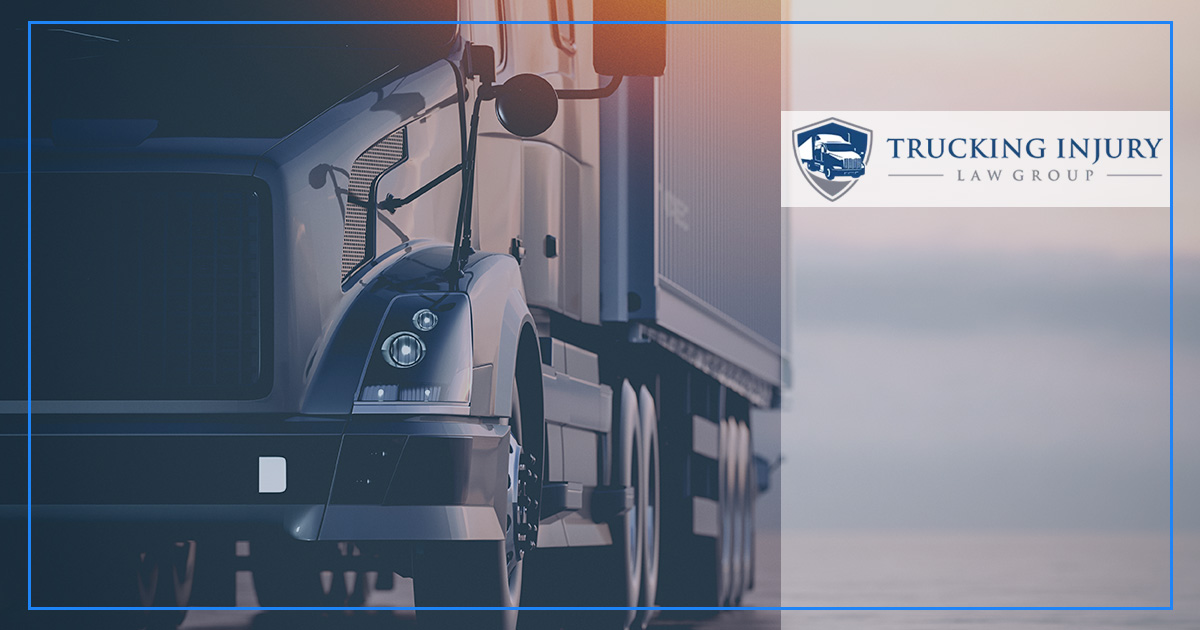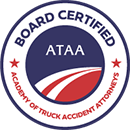How Often Do Truckers Need to Check Their Cargo Loads?

When the driver fails to uphold their responsibilities, it can lead to accidents. At the Trucking Injury Law Group, we have seen the consequences of these accidents, and we want to prevent these incidents from occurring on the road. Let’s examine how often truckers need to check their cargo loads.
What Are FMCSA Requirements for Cargo Securement?
Under the FMCSA Cargo Securement Rules, there are guidelines on how cargo should be loaded, secured, and checked during transit. According to these rules, truckers must:
- Make sure that the cargo is properly secured using tie-downs, chains, straps, or other securement tools.
- Prevent cargo from shifting or falling during transportation
- Inspect cargo regularly to ensure the load remains secure throughout the journey
A truck driver or company failing to follow these regulations could be subjected to fines, penalties, and license suspension. Along with that, it could be deemed as negligent actions, which could open them up for lawsuits in a trucking accident case in Boise.
Inspection Throughout the Trip
The pre-trip inspection is an important part of the process. The FMCSA requires truckers to check their cargo and securement systems before hitting the road. With that, they must ensure that everything is safely loaded, tied down, and properly distributed according to weight regulations. Also, these inspections can make sure that the cargo does not increase the risk of oversized load accidents.
After completing the pre-trip inspection and addressing any issues, truckers can proceed to the next stage of the journey. However, cargo inspections do not stop there. Other inspections need to take place throughout the trip.
Once the truck is on the road, truckers need to make sure to inspect their loads at certain intervals. According to 49 CFR §392.9, these drivers are required to stop and examine their cargo and securement devices at these times:
Within the First 50 Miles of Travel
The cargo can shift any time the truck has been on the road. For that reason, these drivers are required to stop and recheck their cargo within the first 50 miles of the trip. The purpose of this first check is to:
- Tighten any loose tie-downs
- Re-secure cargo that may have shifted
- Make sure that securement devices remain in place and functioning as intended
This first inspection makes sure that the cargo is secured and safe to continue on the journey. Many times, if this first inspection is skipped, it could lead to delivery truck accidents on the road. Even the slightest movements in cargo can compromise safety if left unaddressed.
After Every Three Hours of Driving or 150 Miles
After the first 50-mile check, there are other inspections. According to FMCSA rules, truck drivers must inspect their cargo every 150 miles or every three hours, whichever comes first. Once again, the trucker will need to:
- Confirm that all tie-downs are secure and do not show signs of wear or loosening.
- Re-adjust the cargo if necessary to prevent additional shifting.
- Assess the trailer’s condition to ensure no signs of damage or wear could impact cargo security.
With these regular inspections, drivers can make sure that changes in road conditions, weather, or other factors have not affected the stability of the cargo.
At Every Duty Change
Along with periodic inspections while in transit, the FMCSA requires drivers to inspect their cargo anytime they take a break or change duty status. Whether refueling, rest breaks, or a shift change, these truckers have to verify that the cargo is secure.
Are There Additional Inspections?
Sometimes, special circumstances require truckers to check their cargo in addition to the mandated checks. These situations include:
Severe Weather Conditions
When driving through rain, snow, or high winds, these drivers should perform additional checks to make sure their cargo has not been affected by the elements. Wind and slick roads can shift loads.
Rough Terrain or Road Conditions
Poorly maintained roads, steep inclines, or rough terrain can cause cargo to shift unexpectedly. During these times, truckers should stop and inspect their cargo after encountering these conditions.
Hazardous Materials
When transporting hazardous materials, additional precautions must be taken. If not properly secured, these types of cargo can be dangerous. Truckers must make sure these loads are secured to abide by the stringent safety regulations.
Why Regular Cargo Checks Are Essential
Regular cargo inspections are not only required by law but also promote road safety and accident prevention. By consistently monitoring their cargo and making sure that securement devices are functioning as intended, truckers can reduce the risk of:
- Cargo spills
- Truck rollovers
- Accidents and injuries
Cargo inspections are a mandated part of a trucker’s responsibility to ensure the safety of everyone on the road. Under FMCSA regulations, truckers must check their cargo at certain required intervals. Plus, there may be additional inspections due to the weather or road terrain. These inspections protect truckers, other drivers, and the cargo being transported.
When they fail to live up to these responsibilities, truckers could be liable for any accidents on the road.





